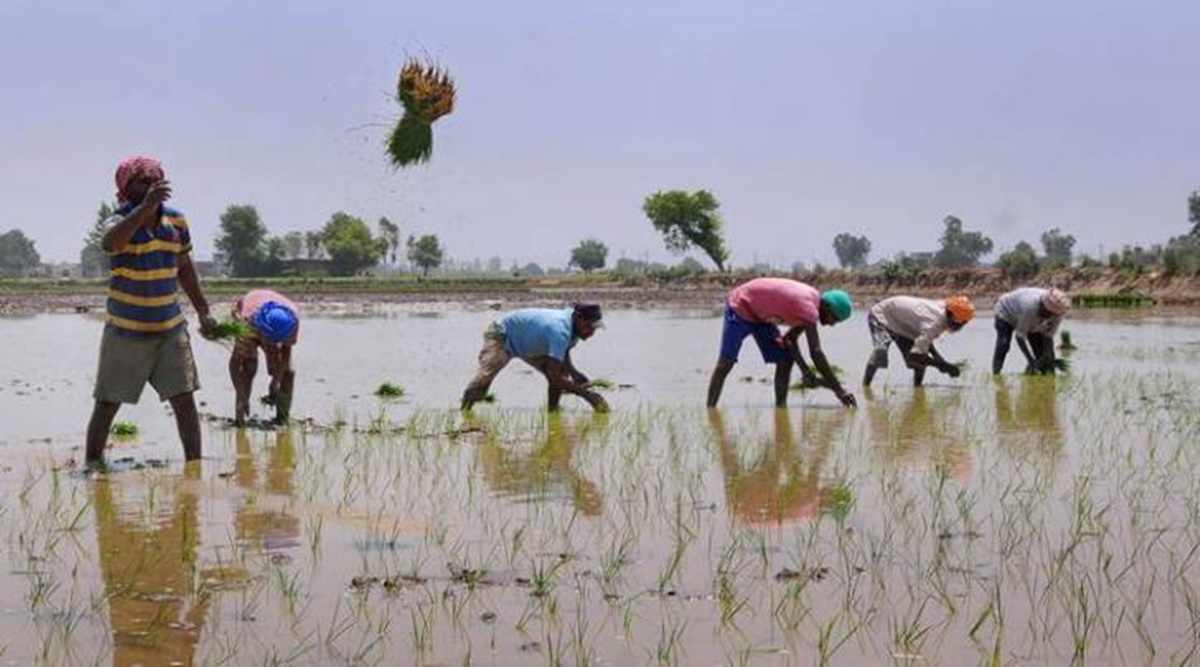Updated: March 24, 2021 12:31:25 am
 Farmers said this was a direct effort on part of the government to control pulse price inflation ahead of state elections at the expense of farmer’s incomes.(PTI/File)
Farmers said this was a direct effort on part of the government to control pulse price inflation ahead of state elections at the expense of farmer’s incomes.(PTI/File) The central government’s decision to prepone the announcement of import quotas for tur, moong and urad has not gone down well with growers. Farmers said this was a direct effort on part of the government to control pulse price inflation ahead of state elections at the expense of farmer’s incomes.
Lalit Patil Bahal, executive president of Shetkari Sanghatana, claimed this promotion of imports would result in the ongoing farmers’ movement spreading to other parts of the country.
On March 19, the central government had announced its intention of allowing imports of 4 lakh tonnes of tur and 1.5 lakh tonnes of moong for the next fiscal. This was in addition of 2 lakh tonnes of tur to be imported from Mozambique and 4 lakh tonnes of urad, which was announced earlier. India annually imports 10-15 lakh tonnes of pulses, which is a steep fall from the 30-40 lakh tonnes of import the country used to report around five years ago.
Traders pointed out how in the previous years, the import quotas were announced towards end of April or early May, with daal millers and processors expected to complete the imports before the domestic arrivals start in the markets. This year, the import quotas have been preponed, which traders said was because of the pulse price inflation noticed in the country. Prices of almost all pulses in the country is now between Rs 100-120 per kg in retail markets.
Arrival of urad and moong, both kharif crops, in wholesale mandis is negligible, but farmers continue to bring tur to the mandi. At Latur’s wholesale mandi — the largest tur market in the country — around 2,500 quintals of the lentil arrive on a daily basis. As against the government-declared Minimum Support Price (MSP) of Rs 6,000 per quintal, the average trading price of tur at Latur’s market is Rs 6,800.
Nitin Kalantri, a Latur-based dal miller and trader, pointed out how mandi prices dropped to Rs 6,700 a day after the import quota was announced.
– Stay updated with the latest Pune news. Follow Express Pune on Twitter here and on Facebook here. You can also join our Express Pune Telegram channel here.
According to Patil Bahal, cheap imports would push down the wholesale price of pulses and wean away farmers from growing pulses. Referring to the ongoing farmers’ agitation against the three farm laws in the country, Patil Bahal said such trade decisions would result in the movement spreading to other parts of the country.
Interestingly, Patil Bahal’s outfit had earlier supported the laws. Anil Ghanwat, another leader from Shetkari Sanghatana, which was founded by late Sharad Joshi, is part of the three-member body constituted by the Supreme Court to study the laws.
Manikrao Kadam, another farmer leader from Maharashtra, pointed out how farmers had taken to growing pulses to make the country self-sufficient in protein. “If the government doesn’t ensure proper prices for farmers, they will again go for other crops,” he said.